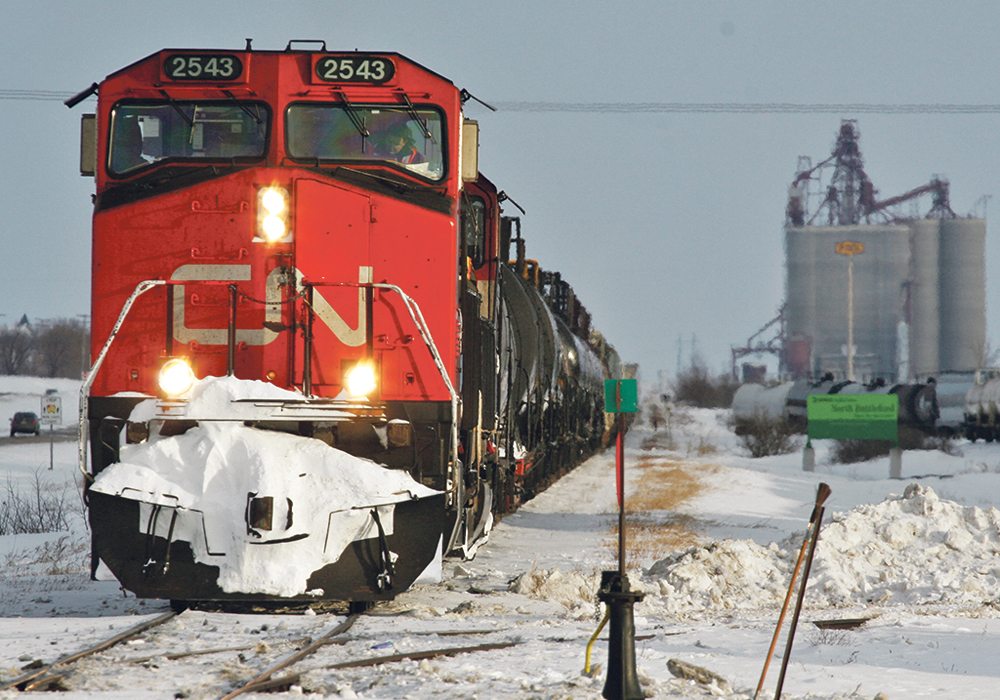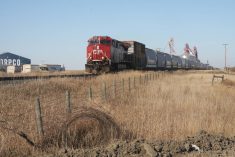Here we go again.
Some prairie farmers cannot ship their grain while grain companies and their friends blame the railways for not getting the grain to port.
After months of railway lobbying, the federal government is pushing new transportation legislation, claiming that Bill C-49 will punish the railways for neglecting grain shipments.
Yet this legislation effectively deregulates those railways.
If you believe the grain companies and their friends in the Ag Transport Coalition, grain is not getting to port because the railways are ignoring rail car orders. Yet, the more grain the railways haul, the more money they make, so this claim does not meet the smell test.
Read Also

Proactive approach best bet with looming catastrophes
The Pan-Canadian Action Plan on African swine fever has been developed to avoid the worst case scenario — a total loss ofmarket access.
The Canadian Transportation Agency (CTA) and the independent grain monitor, Quorum Corp., are objective sources of measuring grain movement. Every December the CTA audits the railways and looks at how much export grain they move annually. As of Dec 31, 2017, the railways moved 43.2 million tonnes of grain to port, up 6.9 percent compared to 2016, more grain than ever.
On March 6, Quorum reported, “year to date western Canadian shipments from port terminal elevators at Week 30 are five percent lower than the same period last year and one percent lower than the five-year average.”
One percent less still represents a lot of tonnage, however. If we remember that India imposed high tariffs on Canadian pulse exports, it is no surprise overall shipments are slightly lower.
The numbers show the railways are doing a good job of moving grain to port.
If the system is indeed delivering enough grain to port, we must conclude that grain companies are ordering cars based on priorities other than meeting local farmer requirements.
Grain companies can use local car shortages as an excuse to pay farmers less for their grain. They get away with it because almost two-thirds of prairie delivery points are served by just one grain company, making farmers captive to the company at the closest delivery point.
Elevator agents can tell farmers that prices are down because railways are not moving grain, but then offer to buy the farmer’s grain if he or she is willing to accept a higher basis, i.e. a greater price spread between what is offered at inland terminals and the coast.
Dazzled by the pseudo-economic term “basis,” the farmer sells for less and the grain company pockets the difference.
When the farmer-controlled Canadian Wheat Board was responsible for selling grain, it optimized the system to return the maximum amount of money to farmers and organized grain shipments to maximize the shipping capacity of the overall system. The extra money was passed back to farmers.
Without the CWB, the grain companies use their local monopolies to maximize their own profits while blaming the railways.
By accepting the blame for plugged elevators, railways position themselves to lobby for further deregulation.
Bill C-49’s amendments to the transportation act create large loopholes for railways, and grain companies will not likely choose to offend the railways with reciprocal penalties or court cases, when they can take expenses out of farmers’ grain cheques, especially when 90 percent of prairie delivery points are serviced by just one railway.
Instead of deregulating the railways via Bill C-49, the government should clip grain companies’ market power over farmers through regulation.
Since the CWB was killed, grain companies are smiling all the way to the bank and the amended transportation act will soon let the railways join them, unless the Senate provides sober second thought.
Ken Larsen is a member of the National Farmers Union, Region 7 (Alberta), and edits the Canadian Wheat Board Alliance website. He farms with his family west of Red Deer.

















